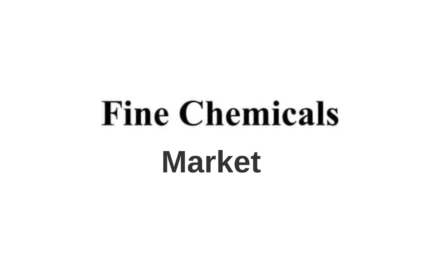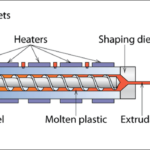The production of fine chemicals faces several sustainability challenges due to the complexity of the manufacturing processes, the need for specialized raw materials, and the environmental and economic demands of modern industries. Here are the main challenges associated with the sustainable production of fine chemicals:
1. High Energy Consumption
- Challenge: Fine chemical production often involves energy-intensive processes due to the need for precise reactions, controlled environments, and often high temperatures or pressures. Many fine chemicals require batch processes, which are typically less energy-efficient than continuous processes used in bulk chemicals.
- Impact: This high energy demand contributes to a larger carbon footprint, making the process less sustainable and increasing the environmental impact.
2. Use of Hazardous Raw Materials
- Challenge: Fine chemicals often rely on specialized, sometimes hazardous, raw materials, such as solvents, reagents, or catalysts, that can be harmful to both human health and the environment. The production process can produce toxic by-products or involve substances that require careful handling and disposal.
- Impact: The use of hazardous materials raises concerns about safety, toxic waste management, and the potential for environmental contamination. Handling and disposal of these substances require significant regulation and compliance to minimize risks.
3. Generation of Waste and By-products
- Challenge: Fine chemical processes can generate significant amounts of waste and by-products that need to be safely handled or disposed of. Due to the complexity of reactions and the need for precise control, the yields may not always be optimal, resulting in waste that is difficult to manage.
- Impact: Waste disposal, especially of hazardous materials, poses a challenge in terms of both environmental sustainability and cost. Moreover, inefficient processes lead to higher consumption of raw materials, making the production less resource-efficient.
4. Water Use and Management
- Challenge: The production of fine chemicals often requires large quantities of water, both for cooling and as part of the reaction process. Fine chemical plants may consume significant water resources, especially in batch processes.
- Impact: Excessive water use can contribute to water scarcity, particularly in regions facing water stress. Furthermore, wastewater from these processes may be contaminated with chemicals or solvents, requiring treatment before discharge.
5. Supply Chain Sustainability
- Challenge: The supply chains for fine chemicals can be complex and involve the sourcing of rare or non-renewable raw materials. Often, the materials must be transported across long distances, contributing to carbon emissions and resource depletion.
- Impact: Unsustainable sourcing practices, such as the overexploitation of natural resources or reliance on non-renewable raw materials, contribute to environmental degradation and create challenges in ensuring the sustainability of the entire supply chain.
6. Regulatory Compliance and Safety
- Challenge: Fine chemicals are often subject to stringent regulations to ensure safety, quality, and environmental protection. Meeting these standards requires significant investment in research, development, and process improvements. In some cases, compliance with regulations may add complexity to the manufacturing process.
- Impact: Ensuring compliance with regulatory requirements adds both cost and time to the production process, which can affect the overall sustainability of fine chemical production. Non-compliance can result in fines, environmental damage, and reputational risks.
7. Scaling Sustainable Processes
- Challenge: Many fine chemical production processes that are sustainable at a small scale are difficult to scale up efficiently. As the scale increases, maintaining efficiency while reducing waste and energy consumption becomes more challenging.
- Impact: Scaling up green or sustainable processes often leads to lower yields or higher operational costs, making it difficult to maintain economic sustainability while achieving environmental goals.
8. Carbon Emissions
- Challenge: Like many chemical manufacturing processes, the production of fine chemicals often relies on fossil fuels or non-renewable energy sources. This contributes to greenhouse gas emissions during both the production and transportation stages.
- Impact: The chemical industry is a significant contributor to global warming and climate change, and achieving carbon neutrality is a major challenge for fine chemical manufacturers, especially given their reliance on energy-intensive processes.
9. Cost-Effectiveness of Sustainable Practices
- Challenge: Incorporating sustainable practices into fine chemical manufacturing often requires upfront investment in new technologies, processes, and infrastructure. While these investments may lead to long-term sustainability, the high initial costs can be a barrier for smaller companies or those operating in competitive markets.
- Impact: The cost-effectiveness of sustainable manufacturing processes may not always be immediately apparent, and the economic pressures to reduce costs can lead to the compromise of environmental goals.
10. Circular Economy and Recycling
- Challenge: Fine chemicals are typically designed for specific applications, and recycling or reusing chemicals can be difficult due to their complex molecular structures. Implementing a circular economy in fine chemical production is challenging due to the difficulty of reprocessing these chemicals once they have been used.
- Impact: The lack of effective recycling methods limits the ability to reduce waste and resource consumption, making it harder to transition to a circular economy in the fine chemical sector.

















